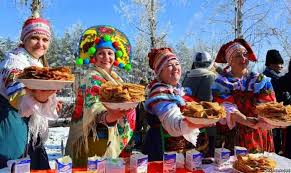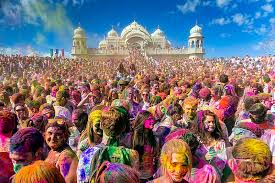Festivals are one of the most beautiful ways to connect with cultures, traditions, and communities around the world. From local traditions to global celebrations, these events bring people together, fostering joy, unity, and a deep sense of belonging. In this article, we’ll explore the significance of festivals, how they preserve cultural heritage, and why embracing global traditions can enrich our lives.
The Power of Festivals: Connecting Cultures and Communities
Festivals serve as powerful expressions of culture, spirituality, and community. They are moments where people from different walks of life come together to celebrate shared beliefs, values, and traditions. Here’s why festivals are so important:
1. Cultural Preservation
Festivals are an effective way to preserve and promote cultural heritage. Whether it’s a religious holiday, a seasonal celebration, or a historical commemoration, festivals often carry forward ancient practices and customs that have been passed down through generations. These celebrations ensure that cultural traditions continue to thrive and adapt over time.
- Example: The Chinese New Year is not just a time for festivities but an important cultural event that honors centuries-old traditions like dragon dancing, lantern festivals, and family reunions.
2. Bringing Communities Together
One of the greatest gifts of festivals is their ability to unite people. Whether you’re celebrating a global holiday or a regional festival, the shared experience of joy and celebration builds strong connections between individuals and communities. Festivals provide a space where people from different backgrounds and beliefs can come together, strengthening the social fabric of society.
- Example: Diwali, the Festival of Lights, brings families together across the world to celebrate with music, food, and rituals, bridging cultural gaps and promoting unity.
3. Mental and Emotional Well-being
Festivals have a positive impact on mental health by fostering feelings of happiness, belonging, and community. Engaging in joyful celebrations can uplift spirits, reduce stress, and improve overall well-being. Participating in festivals allows individuals to take a break from the routine and immerse themselves in moments of joy and gratitude.
- Example: The Carnival of Brazil is an exuberant celebration full of music, dancing, and costumes that provides an emotional release and brings joy to millions.
The Global Landscape of Festivals
From music and food festivals to religious and seasonal celebrations, festivals come in a wide array of themes and traditions. Here are some iconic festivals from different parts of the world:
1. Religious Festivals
Religious festivals provide an opportunity for spiritual reflection and connection. They are a time for communities to unite, celebrate, and share their beliefs through rituals and traditions.
- Christmas (Worldwide) – Celebrated by Christians, Christmas is the most widely recognized religious festival that commemorates the birth of Jesus Christ. Festivities include church services, family gatherings, and gift exchanges.
- Eid al-Fitr (Muslim World) – This important holiday marks the end of Ramadan, the Islamic holy month of fasting. Eid is a joyous occasion for family gatherings, feasts, and charitable acts.
- Hanukkah (Jewish Festival) – Hanukkah, also known as the Festival of Lights, celebrates the miracle of the oil that lasted eight days. Families light candles, exchange gifts, and enjoy traditional foods.
2. Cultural Festivals
Cultural festivals celebrate the art, music, dance, and traditions unique to a particular country or region. These festivals are a rich showcase of diversity, reflecting the cultural richness of different parts of the world.
- Oktoberfest (Germany) – One of the world’s largest beer festivals, Oktoberfest is a celebration of Bavarian culture with traditional food, music, and, of course, beer.
- La Tomatina (Spain) – Held annually in Buñol, Spain, La Tomatina is a massive food fight with ripe tomatoes, attracting thousands of participants from around the world.
- Diwali (India) – The Festival of Lights is celebrated by millions of Hindus, Sikhs, Jains, and Buddhists worldwide. It marks the victory of light over darkness and good over evil, celebrated with fireworks, sweets, and family rituals.
3. Music and Arts Festivals
Music and arts festivals celebrate the creative spirit of humanity, showcasing performances, art installations, and immersive experiences. These festivals attract art lovers, performers, and music fans from across the globe.
- Coachella (USA) – A prominent music festival in California, Coachella brings together top artists from various genres, attracting thousands of music enthusiasts.
- Glastonbury (UK) – Known for its diverse music lineup and vibrant cultural atmosphere, Glastonbury is one of the largest and most iconic music festivals in the world.
- Edinburgh Festival Fringe (Scotland) – As the largest arts festival in the world, the Edinburgh Fringe offers an eclectic mix of theater, comedy, dance, and visual arts.
4. Seasonal Festivals
Seasonal festivals celebrate the change of seasons, honoring the rhythms of nature and agricultural traditions. These festivals are often linked to harvest cycles, solstices, or the changing weather patterns that shape life.
- Holi (India) – Known as the Festival of Colors, Holi celebrates the arrival of spring with vibrant powders, music, and dancing.
- Thanksgiving (USA and Canada) – A holiday focused on gratitude, Thanksgiving celebrates the harvest and blessings of the past year with family feasts.
- Mardi Gras (USA) – Celebrated in New Orleans, Mardi Gras marks the beginning of Lent in the Christian calendar and is known for parades, costumes, and vibrant celebrations.
The Benefits of Embracing Global Festivals
- Broader Cultural Awareness
By experiencing festivals from different parts of the world, we gain a deeper understanding of other cultures. Festivals provide insight into different ways of life, enhancing our ability to appreciate diversity and embrace global traditions.
- Fostering Global Unity
In a world that is increasingly interconnected, festivals serve as a reminder of our shared humanity. They celebrate universal themes such as love, gratitude, and togetherness, helping to foster global unity and peace.
- Creating Lasting Memories
The joy of festivals often comes with moments of bonding, learning, and laughter. Whether it’s with family, friends, or strangers, these celebrations create lasting memories that enrich our lives.
Conclusion
The joy of festivals goes beyond just a day of celebration; they are a living reflection of the world’s rich cultural tapestry. From religious observances to cultural expressions and music celebrations, festivals connect us, celebrate our diversity, and remind us of the beauty in life’s traditions. Embrace these global celebrations, and you’ll not only enjoy the fun but also gain valuable insights into the cultures, customs, and people that make our world so wonderfully diverse.
SEO Tips:
- Keywords: global festivals, cultural traditions, religious festivals, music festivals, seasonal celebrations, holiday festivals, community celebrations, international festivals, cultural awareness, family festivals.
- Meta Description: Explore the joy of festivals around the world, from religious to cultural and seasonal celebrations. Learn how these traditions bring communities together and celebrate global diversity.
- Headings: Use SEO-friendly headings like “The Power of Festivals,” “Religious Festivals Around the World,” and “Cultural and Music Festivals” to improve search engine rankings.
This article is designed to optimize for SEO while offering insightful content on the joy and significance of festivals across the globe.





